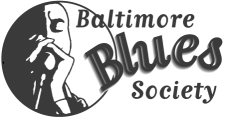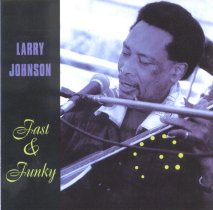
 |
Playing regularly at Terra Blues in New York City, Larry Johnson is recognized as a singer and musician who is well versed in the delicacies and honesty of traditional blues. One need only listen to this 1970 reissue to understand why. He is a man who has the talent, the know-how and the experience to easily back his tales of hardship and worry. His reflective vocal choruses together with a compatible full-bodied rhythmic guitar shows a broad understanding of his craft and musical heritage. His song selections (many his own) also illustrate his true feeling for the history of black music, for a time when stories told were the only history of his people. People who came before and opened doors and forced those who didn't know, to know, to understand, to appreciate. It is important to note that his knowledge of the musical sound is as important as his words. His use of blues imagery utilizing traditional forms is well illustrated on this recording. Forms that have been drawn together through the years to form his own personal statement. For example, "Four Women Blues" has lonely sounds that are one melodic step above a field holler. "Up North Blues" has the distant image of an old steam whistle implying escape or movement. Talking blues such as "The Beat From Rampart Street" and "Cookbook" is an extremely old form in which both singer and guitar speak to one another just as understanding equal partners should. Larry Johnson faces his cultural history squarely in "Pick Poor Robin Clean," a tale of deceit. When Johnson identifies himself in the song as a 'hustling coon" he is to be given credit for recognizing past indignities and placing them in their proper context. Johnson also obviously understands what it means to be "Ragged & Dirty" and conveys a vocal image of country, poverty, desolation and hopelessness while his guitar offers hope in a call & response voice with precision and finger-picking clarity. The gem of this album, in my opinion, is "Lordy, Good Lord", one of the singers' own great songs. His presentation has a fascinating guitar riff blending perfectly with a sad and deeply felt vocal that clearly illustrates three important aspects of this talented artist: His voice, his fingering and his heart. Larry Johnson's respect for the past is a tribute to the present. This is beautiful music to be cherished. Sheldon Harris (1996) author of Blues Who's Who |
All materials protected by copyright of the BBS 2003